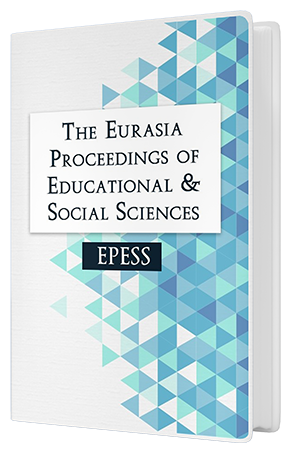STRUCTURAL MODEL OF BELIEFS, CONCEPTUAL KNOWLEDGE AND EXPERIENCE AMONG TRAINEE MATHEMATICS TEACHERS
Keywords:
Beliefs, conceptual knowledge, experience, trainee mathematics teachersAbstract
Beliefs, conceptual knowledge and experience play important roles in enhancing the quality and effectiveness of the teaching and learning of mathematics. As such, this study is conducted with the aim of profiling three main constructs, namely beliefs, conceptual knowledge and experience among trainee mathematics teachers. The study is also intended to produce a measurement model of these constructs and subsequently a structural model that incorporates all the hidden and observed variables. 317 trainee teachers from six Higher Education Institutions (HEIs) (public universities) were randomly selected to participate in this study. Beliefs, conceptual knowledge and experience are measured using mathematical beliefs questionnaire (MBQ), mathematical experience questionnaire (MEQ) and a test of conceptual knowledge (TCK), focusing on the topic of fractions. The structural model shows that there is a weak correlation between mathematical beliefs and mathematical experience; a very weak correlation between conceptual knowledge and mathematical beliefs; and a very weak correlation between conceptual knowledge and mathematical experience. In addition, SEM analysis shows that there is a significant contribution of the four variables on the mathematics beliefs of the trainee teachers. Furthermore, regression coefficient of mathematics content knowledge experience of the respondents is the highest among regression coefficients of the predictor variables.Downloads
Published
Issue
Section
License
Copyright (c) 2016 The Eurasia Proceedings of Educational and Social Sciences

This work is licensed under a Creative Commons Attribution-NonCommercial-ShareAlike 4.0 International License.
The articles may be used for research, teaching, and private study purposes. Any substantial or systematic reproduction, redistribution, reselling, loan, sub-licensing, systematic supply, or distribution in any form to anyone is expressly forbidden. Authors alone are responsible for the contents of their articles. The journal owns the copyright of the articles. The publisher shall not be liable for any loss, actions, claims, proceedings, demand, or costs or damages whatsoever or howsoever caused arising directly or indirectly in connection with or arising out of the use of the research material. All authors are requested to disclose any actual or potential conflict of interest including any financial, personal or other relationships with other people or organizations regarding the submitted work.




